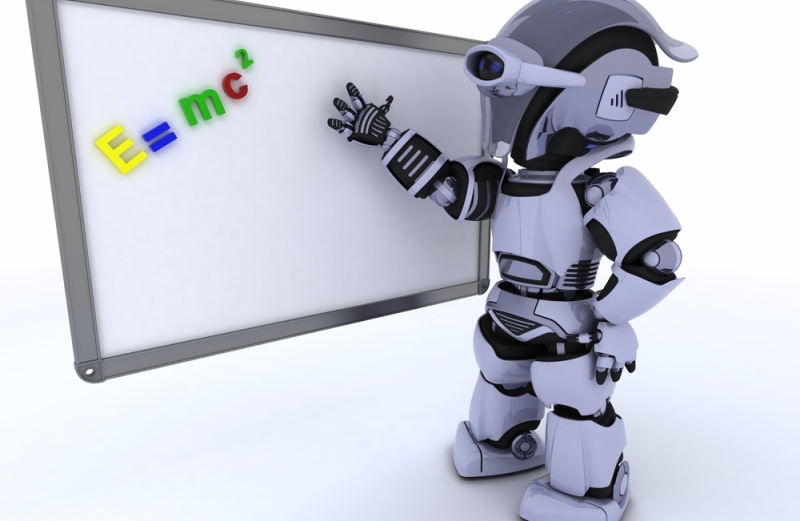
Automation has affected nearly every industry–47 percent of U.S. employees are at risk of computer automation, according to an Oxford University study–and teachers are no longer exempt. While automation in the classroom started with automated lights, it is now expanding to automating tasks with artificial intelligence (AI) machines.
While some technophobes may paint a picture of robots replacing teachers in the near future, nearly all technology experts agree that this is highly unlikely. Rather, AI will just help teachers increase efficiency and improve their classroom management.
The Clayton Christensen Institute, a nonprofit, nonpartisan think tank dedicated to improving the world through disruptive innovation, recently released a new report, “Teaching in the Machine Age: How Innovation Can Make Bad Teachers Good and Good Teachers Better.”
The report explains that AI machines will not replace teachers, but rather allow schools to address three challenging situations: when schools lack expert teachers, when expert teachers must tackle an array of student needs, and when expert teachers need to teach more than academic content. The report argues that, “rather than seeing technological progress as a threat, teachers and education leaders should take advantage of the many ways technology can enhance their work.”
When schools lack expert teachers, for instance if students are interested in learning a specific language but the schools cannot locate a competent teacher, online learning can help meet the students’ needs. The report explains, research shows that putting high-quality curriculum and online-learning resources in the hands of less-effective teachers can boost students’ educational outcomes.
Ideally, students would be taught using methods that best help them learn. However, when one teacher is trying to manage 25 different learning styles, things can get difficult. The Clayton Christensen Institute argues that AI can help bridge a teacher’s desires with reality. “Computers can provide many aspects of basic content and skills instruction, empower teachers with better assessment data, provide learning resource recommendations, and give teachers more time and energy to work one-on-one and in small groups with students,” the report explains.
Reading, writing, and arithmetic aren’t the only skills children need to learn in a classroom. However, developing more advanced or noncognitive skills is harder for teachers; both in helping students learn the skills and accurately measuring a student’s mastery of less traditionally academic skills. The report details, “a growing body of research shows that deeper learning and noncognitive skills play a significant role, alongside content mastery, in determining students’ academic and life outcomes. Innovations that commoditize teacher expertise give teachers greater capacity to focus on helping students develop these important skills.”
The report also argues that AI technology does something else that’s incredibly important–it commoditizes teaching expertise. The report explains that while researchers are good at identifying strong teachers ex post facto, researchers and school administrators struggle with identifying what young, new teachers will become the teaching superstars of the future. With AI technology, this problem can be minimized.
For non-expert teachers, AI machines allow non-experts to substitute for experts. Because AI technology can fill the gaps in a non-expert teacher’s skill set, students can get a far more similar learning experience as their peers who have an expert teacher.
Additionally, expert teachers can benefit because AI technology enhances an expert teacher’s ability to perform higher-order tasks that cannot be reduced to rules-based instructions. By automating basic administrative tasks, such as taking roll or recording grades, teachers can spend more one-on-one time with students or use their planning period for actual lesson planning instead of paperwork.
